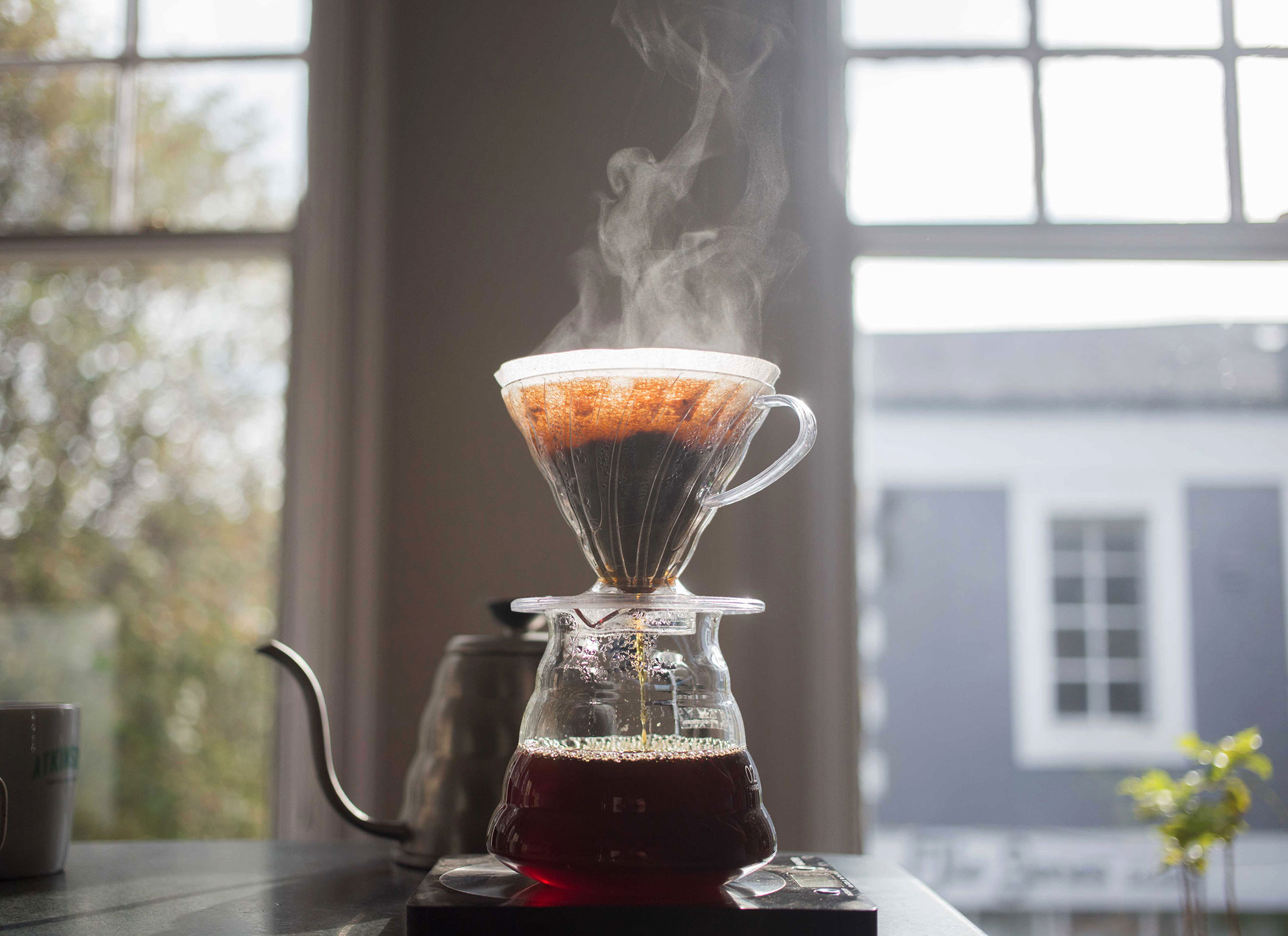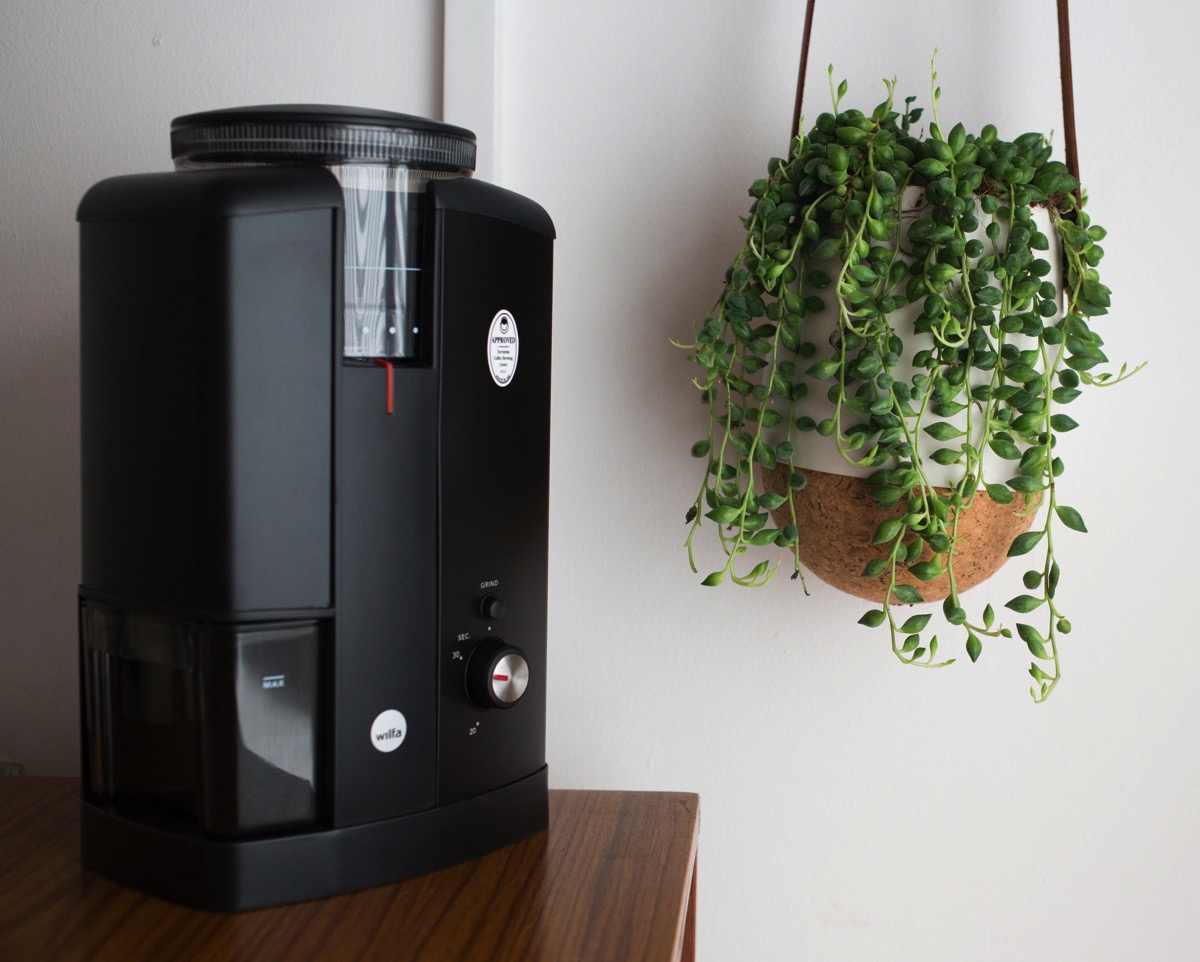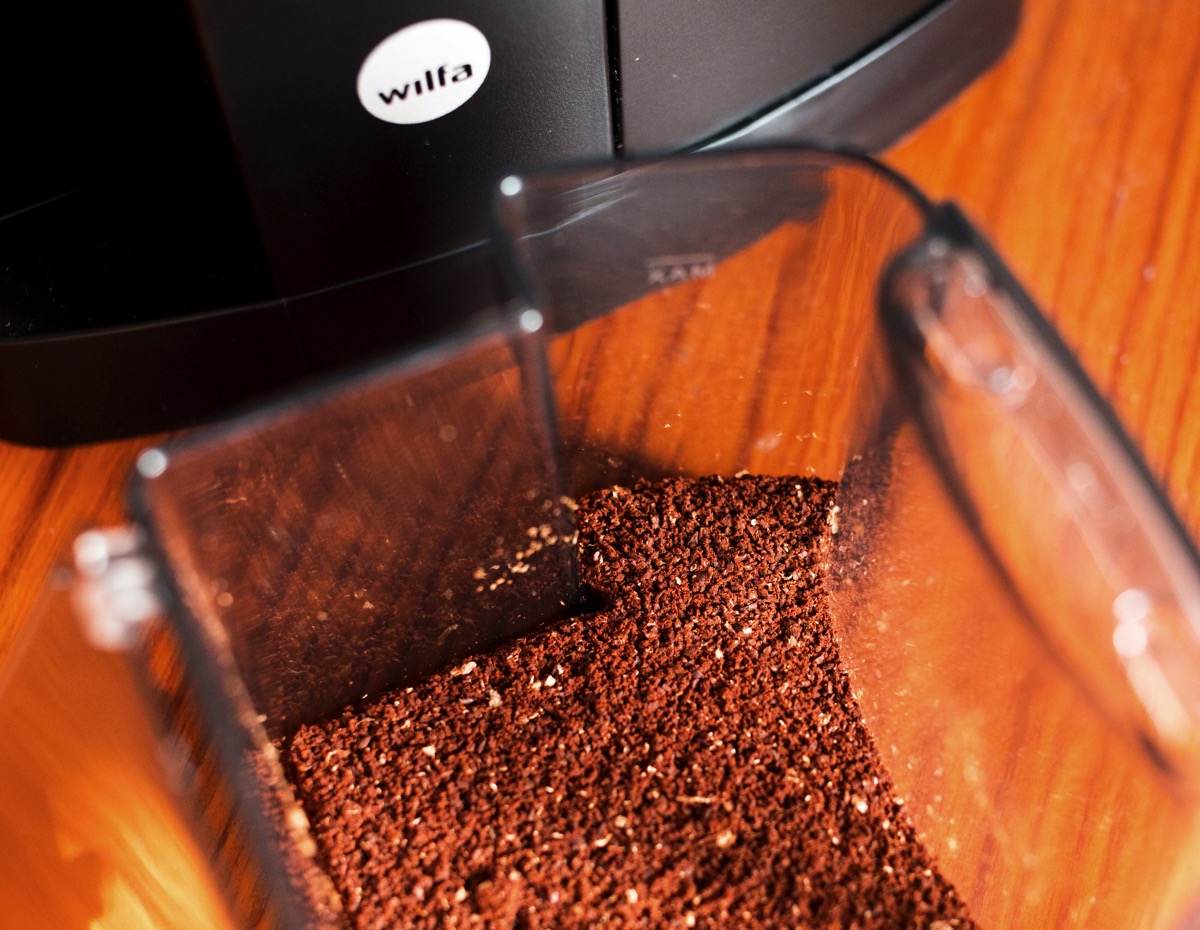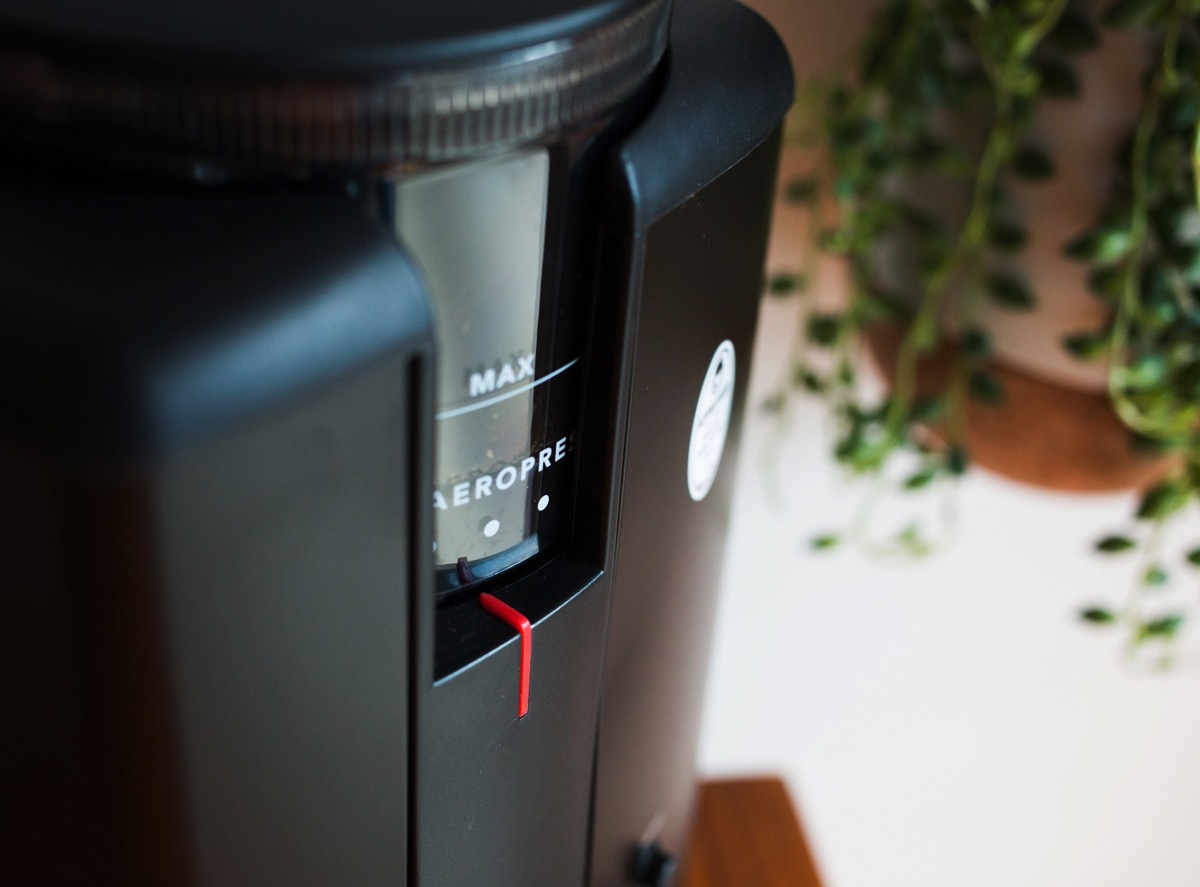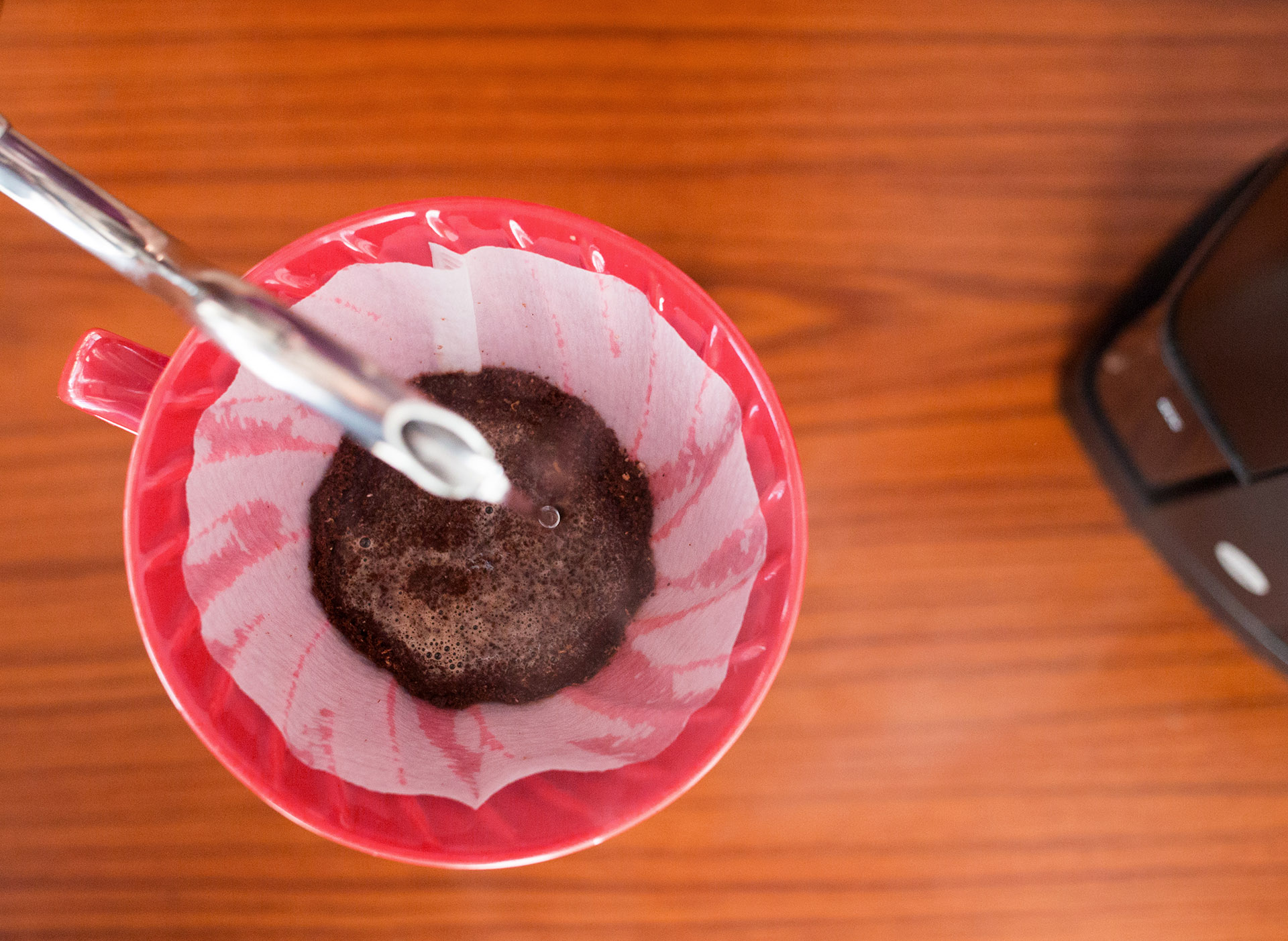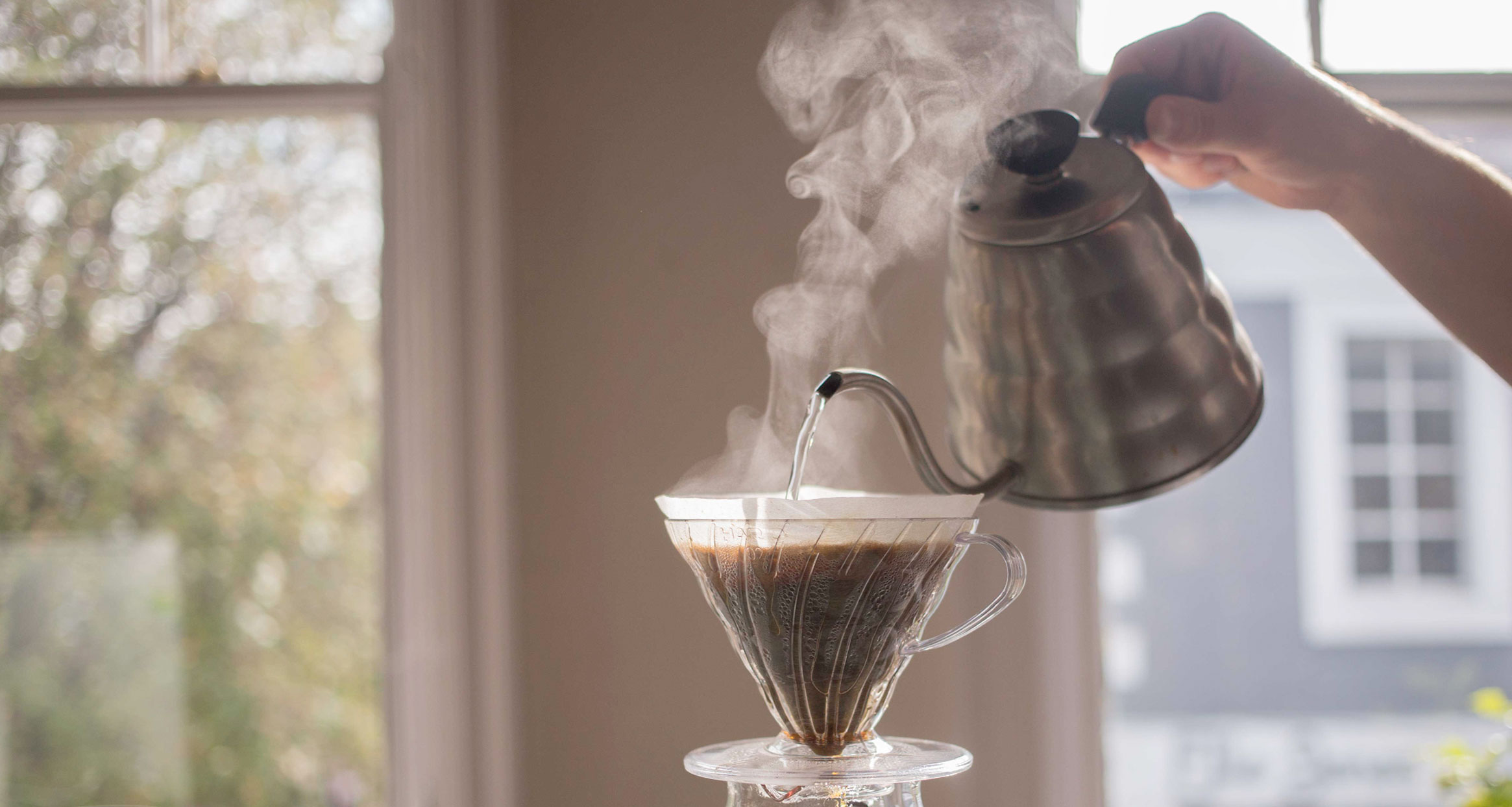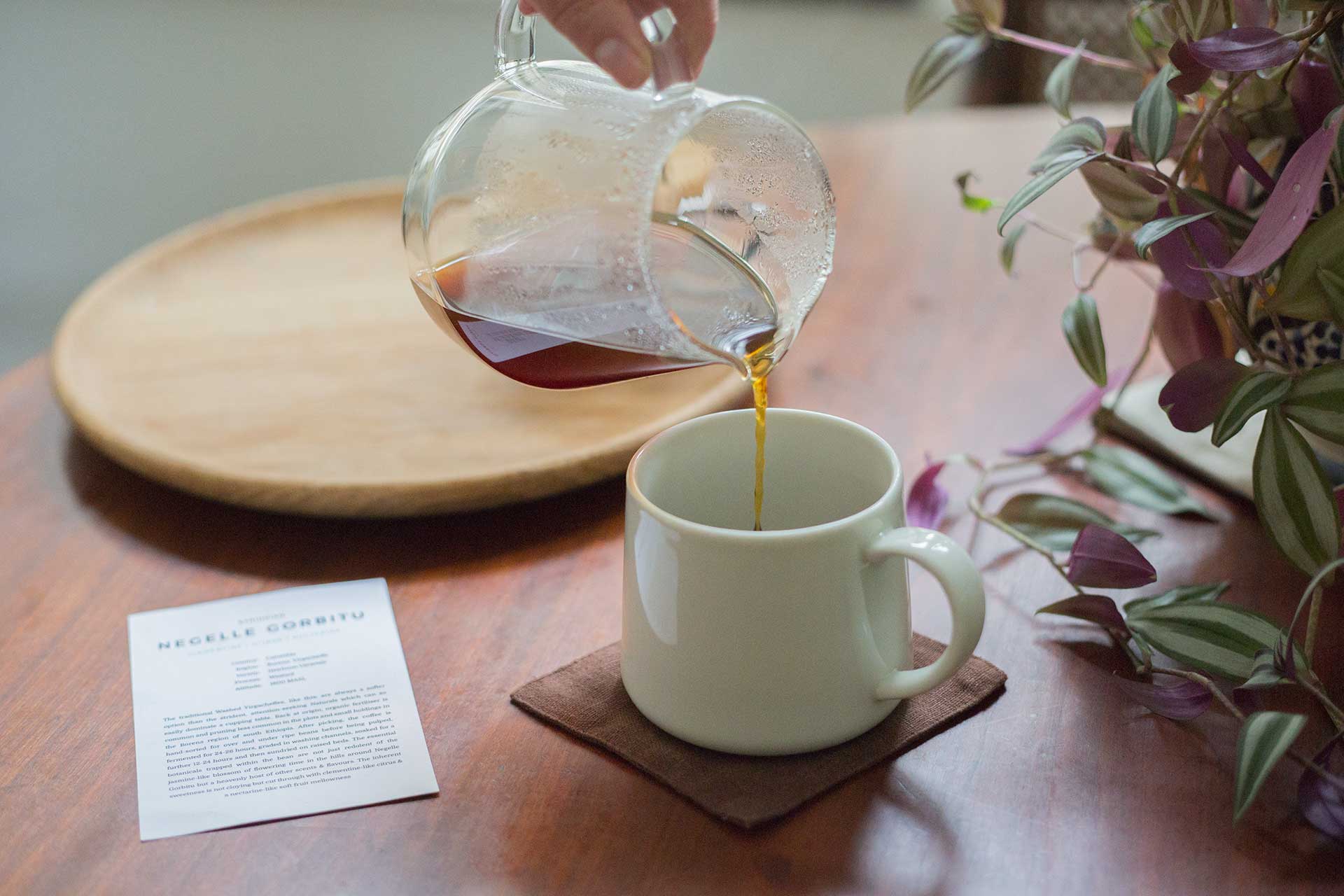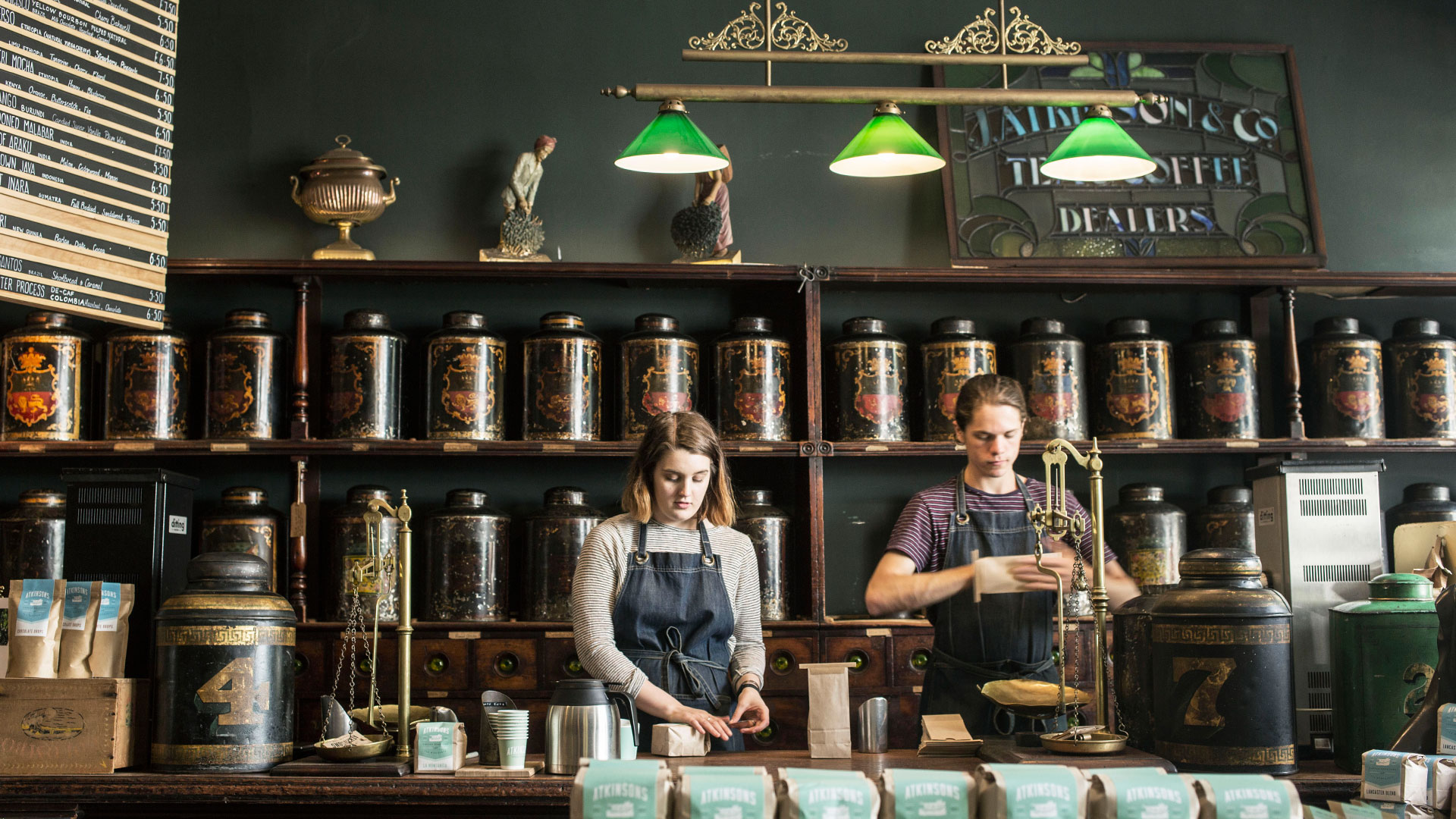With
Atkinsons having continuously traded for all this time, Lancaster became an oasis for fresh, locally roasted beans, in a world increasingly swamped by soluble coffee. For all these loyal customers it was as if instant had never been invented. In the time-honoured ritual of buying coffee, weighed out on the same 18th Century scales that we still use to this day, there is one question that will have been asked more than any other. Having chosen a coffee, Single Origin or Blend and decided on a weight, nowadays 125g, 250g or 500grams, the customer will then be asked this all important question: “Beans or Ground?”
It is at this point that we determine whether the customer has their own grinder or not. In an ideal coffee world everyone would be grinding their coffee on demand just before they brew it. This would then double their enjoyment, as they get to smell the wonderfully complex aroma of those 1,500 flavour compounds being smashed into the volatile aromatics that are released on grinding the beans. These aromas are so fugitive that they escape into the atmosphere, which is why ground coffee is staling 50 times faster than beans. Also, as we receive around 75% of flavour perception through our sense of smell, you could argue that it represents more than half of the coffee experience. So it behoves us as responsible purveyors of the noble bean to encourage every customer to buy a grinder!
The problem is that good engineering doesn’t come cheap. Our shop grinders would set you back about £2,000. There are some excellent hand grinders with conical ceramic burrs that are perfect for the devotee but not exactly convenient for the desperate coffee drinker! There are cheap electric blade grinders, which are basically nut-choppers and breadcrumb makers. Basically with the cheaper domestic grinders you get a very uneven particle size, what we call in the trade: Boulders, Grinds & Fines. So, what is our recommended solution to achieving a perfect solution of evenly extracted coffee grounds in water?
